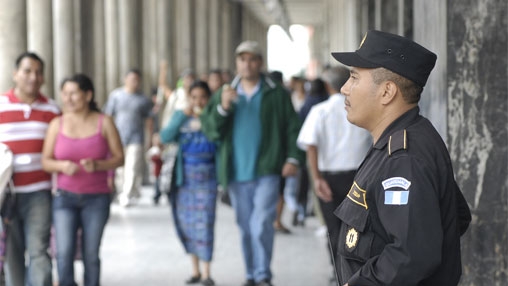Gated communities guarded by gun-wielding sentinels and houses, both big and small, hidden behind barbed wired fences and barred windows seem to be a common sight -and an eyesore- in much of Latin America.
Regardless of their walk of life, Latin Americans want to keep crime out of their homes and lives. Despite the region’s social and economic gains –a growing middle class and a narrowing poverty gap-- citizen security is a top concern. With surveys showing that the number of people citing crime as their top concern has tripled in the past 10 years.
Latin America has become one of the most violent regions in the world. Regional homicide rates top 10 murders per 100,000 people, enough to become an “epidemic” by World Health Organization standards. Particularly worrying is Central America, which clocked up more than 18,000 homicides per year in sharp contrast with European averages such as Spain’s 400 yearly murders.
Crime and violence exact a heavy social and economic toll on countries and communities. Governments, citizens and the private sector pay a huge price for this. Law enforcement, security and health care costs amount to almost 8 percent of Central America’s GDP –or around US$20 billion. And security-related costs for Central America's businesses can add up to 3.7 percent of all firms' sales.
Businesses as a new partner in citizen security
Against this backdrop, businesses across the region are emerging as a new and welcome partner in preventing crime. Call it Corporate Social Responsibility, true altruism or business-savvy, the private sector is making tangible contributions in this area.
“By supporting innovations in the public sector and in civil society, businesses can play a transformational role in promoting evidence-based violence prevention initiatives,” said World Bank Regional Vice President Hasan Tuluy at a Citizen Security Forum held by the World Bank, the American Society and Council of the Americas.
Government officials across the region echo this sentiment.
“There is a limit to what the State can do by itself when it comes to citizen security. The private sector, especially at a local level, can be an effective partner in improving community safety,” said Douglas Moreno, El Salvador’s Deputy Minister of Justice and Public Security.

